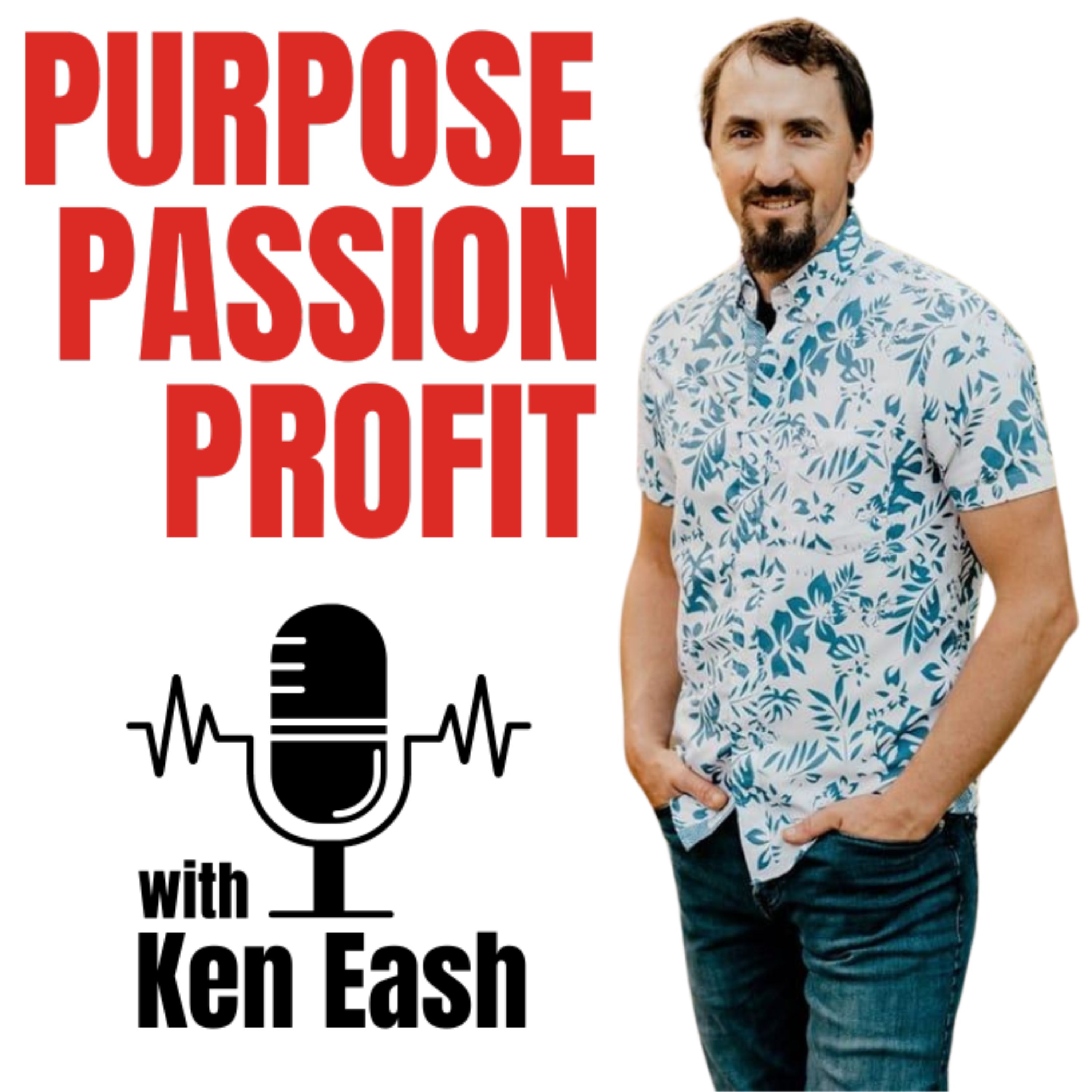Episode 318
Pillar #2: The Early Bird Gets the Worm
In this episode titled "The Early Bird Gets the Worm." Ken explores the second pillar of productivity: being an early mover.
Through historical wisdom, real-life examples of successful entrepreneurs, and scientific studies, we see how early mornings can set you on a path to greater productivity and success.
From Apple's Tim Cook to Virgin Group's Richard Branson, many of the world's top leaders swear by their early start. This episode isn't just theoretical; you'll hear practical tips, from establishing sleep routines to finding compelling reasons to rise early, ensuring you can start making successful changes from the get-go.
Tune in and discover how transforming your mornings could be the key to your next big breakthrough!
Transcript
Pillar number 2, the early bird gets the worm.
Speaker:Now, if you're a morning person like me, you know there's nothing quite like
Speaker:the peace and calm of the early morning hours. You get
Speaker:up, nobody else is awake. Every everything is
Speaker:quiet. You might have some of the early actual birds
Speaker:just starting to wake up, but you can get your cup of coffee
Speaker:and sit there in silence for a while. It's just
Speaker:something about a good way to start the
Speaker:morning and a lot of the most successful
Speaker:entrepreneurs do just that. They get up early even
Speaker:much earlier than I do. Early morning hours are some of the best
Speaker:hours to tackle the most important tasks of the day. Getting up
Speaker:early allows you to accomplish big
Speaker:things before most of the rest of the world has even woken up. Then
Speaker:you've you're already so much farther ahead when you can do that.
Speaker:It's, instead of mind over matter,
Speaker:call it mind over mattress. That thinking has been around for quite a
Speaker:while. Even, Benjamin Franklin came up with a quote. He
Speaker:said, early to bed, early to rise makes a man healthy,
Speaker:wealthy, and wise. A lot of
Speaker:very successful entrepreneurs are early risers. You've
Speaker:got Tim Cook, said he gets up as early as 3:45
Speaker:AM. That's Apple CEO. You've got CEO of
Speaker:Kohl's, Michelle Gas, 4:30 AM to go running. You
Speaker:have, former PepsiCo CEO, Indra I'm not
Speaker:sure how to say that. She's up at 4 AM in
Speaker:Indra Nooyi. I'm not sure. Maybe. I
Speaker:butchered that. Gets up at 4 AM in the office at 7.
Speaker:Twitter cofounder Jack Dorsey up at 5:30. Meditation,
Speaker:go for a jog. Starbucks CEO Howard Schultz up at
Speaker:4 AM. These people are all uber successful.
Speaker:And then you have Richard Branson as well. He's the entrepreneur
Speaker:behind the Virgin Group of Companies. He's up at
Speaker:5:45 AM. That's not super early, but it is early. It's earlier
Speaker:than most of the world rises. And
Speaker:if if you can incorporate that type of thinking,
Speaker:not just into your mornings, but into
Speaker:being early to whatever it is you're doing, being
Speaker:the first mover on whatever venture that you're that
Speaker:you're getting into, being early into
Speaker:the party that will get you so much farther ahead in
Speaker:life. You look at people that are always late. Let's just take
Speaker:Bitcoin for example. I don't know if you're into Bitcoin or not. I've been
Speaker:in and out of it and it's, I
Speaker:enjoy, I enjoy it and I know what it is and and
Speaker:the power and the capability that Bitcoin has to transform the way that we
Speaker:do money. But if you were early into Bitcoin
Speaker:way back years ago, you could
Speaker:have bought many Bitcoin
Speaker:for a dollar. Like it was a couple cents per bitcoin. Now
Speaker:it's up around 70,000 per bitcoin. So say if you had put
Speaker:a $100 into it 20 years ago, which
Speaker:it hasn't even been 20 years ago, 15 years ago,
Speaker:you would be a multi multi multi millionaire right now
Speaker:if you were early to that. I'm not everything does that. Not
Speaker:everything is gonna explode like that, but if you can be early
Speaker:on some of those technologies, you
Speaker:you'll be so much farther ahead and that's that's just
Speaker:with anything in life. If you're early, is better than
Speaker:late. So what does the science say about this?
Speaker:Maybe. Maybe the old sayings are true. Maybe early
Speaker:risers actually do live happier, healthier lives and
Speaker:more productive. Here's what some researchers have to say about
Speaker:it. In 2014, the Department of Psychology at Binghamton
Speaker:University completed a study that included 100 undergraduate
Speaker:students. Their study found that both people who get less
Speaker:sleep and those who delay sleep are prone to
Speaker:repetitive negative thinking. So people who
Speaker:don't sleep as much and people who go to bed later.
Speaker:RNT or repetitive negative thinking is a transdiagnostic
Speaker:disorder that can be observed in other disorders such as depression and
Speaker:anxiety. It's correlated with high levels of worry
Speaker:and negative thought patterns. Early
Speaker:risers increase their chance of success
Speaker:because you don't have as high likelihood of getting
Speaker:into those negative thought patterns. In 2010, Harvard
Speaker:Business Review released a study by biologist Christophe
Speaker:Randler about early risers. 367 university
Speaker:students participated in this survey. They were asked what times of the day they
Speaker:were most energetic. They were also asked how willing and able they were to take
Speaker:action or change a situation to their advantage. He reported,
Speaker:a higher percentage of the morning people agree with statements that indicate
Speaker:proactivity such as, I spend time identifying long range goals for
Speaker:myself and I feel in charge of making things happen. He went on
Speaker:to say that, My research showed that they tend to get
Speaker:better grades in school, which get them into better colleges,
Speaker:which lead to better opportunities. Morning people also
Speaker:anticipate problems and try to minimize them. They're proactive.
Speaker:A number of studies have linked this trait, proactivity, with better job
Speaker:performance, greater career success, and higher wages. Now,
Speaker:I don't know about you, but that sounds like a good reason to
Speaker:incorporate the the early to bad, early to rise
Speaker:or or to be an the early bird gets the worm principle.
Speaker:That's that's a great way to incorporate that or a good reason to.
Speaker:Here's 7 things that you can do to help you out in this
Speaker:area. Number 1, go to bed early. Of course. Number
Speaker:2, turn off your screens. Those
Speaker:screens, they have a blue light that suppresses melatonin, which
Speaker:helps you sleep better. K. Number 3,
Speaker:create a sleep routine. Try to go to bed at a consistent
Speaker:hour and wake up at a consistent hour. That helps
Speaker:you out so much. Number 4 is get some exercise.
Speaker:I just started doing 75 hard and I've been doing a
Speaker:lot more exercise than I normally do. Now
Speaker:I work a very the work that I do is very active
Speaker:and it's hard work. So it's almost like exercise, but it's not
Speaker:specifically exercise. In 75 hard, I've been
Speaker:doing 2 45 minute exercise slash workout
Speaker:slash stretches per day, and it it's
Speaker:changed how I feel. Number 5. This is one thing that you can do
Speaker:if you have a hard time getting out of bed is keeping your alarm
Speaker:clock at a distance. Like put it across the room.
Speaker:If you tend to hit the snooze button, put your alarm clock across the
Speaker:room and you'll want to get up and go turn it off.
Speaker:Number 6, a splash of cold water on the face like that
Speaker:will help you wake up. Get some cold water. Wash your face
Speaker:down. It's just refreshing, rejuvenating. And
Speaker:number 7, the best one of all, give yourself a reason to
Speaker:get up. Thinking of a compelling reason to get out of bed in the
Speaker:morning is possibly the strongest motivator for early
Speaker:rising. You want to accomplish great things. You want to do things
Speaker:to better your situation, to better your life, your health, your career, your
Speaker:family, your relationships, all of those things. That will
Speaker:get you moving more than anything.
Speaker:Do good work.



